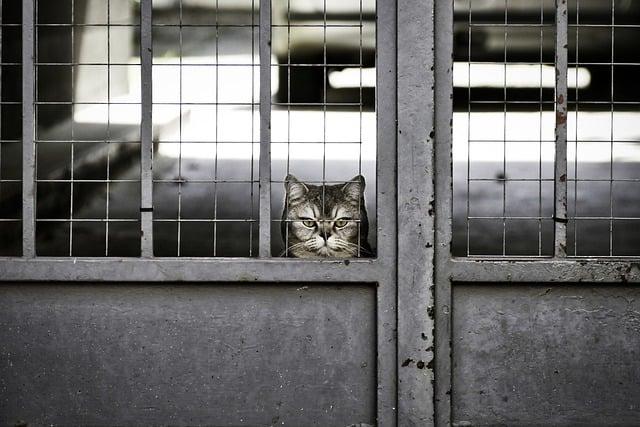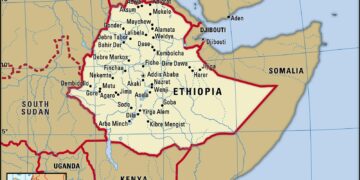On November 19-20, 2024, the bustling city of Addis Ababa, Ethiopia, played host to a vital policy forum addressing one of the most pressing challenges facing the Sahel region: the proliferation of armed groups and the intricate web of conflicts that ensue. The event, organized by the African Union, gathered an array of policymakers, researchers, and experts in security and conflict resolution, all united by a common goal: to forge effective regional strategies for peace and stability. Opening the forum was Ms. Patience Chiradza, the Director of the Governance and Conflict Prevention Directorate at the African union, who delivered a thought-provoking set of remarks that set the tone for the discussions ahead. In her speech, Chiradza emphasized the urgency of coordinated regional approaches to tackle the multifaceted threats posed by armed groups, highlighting the need for collaboration among nations and stakeholders in the Sahel. As experts convened to share insights and propose solutions, her address not only underscored the complexity of the situation but also the critical role of governance and preventive measures in achieving lasting peace across the region.
Opening Remarks: Setting the Stage for Regional Cooperation in the Sahel
In the heart of the Sahel, a region characterized by its vast deserts and diverse cultures, an urgent call for unity and collaboration resonates. The challenges posed by armed groups in this area are not merely local; they transcend borders, affecting the stability and security of the entire region. Regional cooperation must be at the forefront of our strategies to address these multifaceted challenges. by fostering dialog among nations, we can develop extensive and collective approaches that leverage our shared experiences and resources to combat the threats we face. Key elements in this endeavor include:
- Strengthening Security Frameworks: Establishing robust security partnerships among Sahelian nations to enhance intelligence sharing and operational effectiveness.
- Promoting Socio-Economic progress: Tackling the root causes of conflict through initiatives aimed at job creation, education, and infrastructure development.
- Engaging Local Communities: Involving local populations in peace-building efforts to ensure enduring solutions and mitigate the appeal of extremist narratives.
As we navigate this complex landscape, it is pivotal that we remain committed to a multi-stakeholder approach that includes governments, civil society, international organizations, and the private sector. By harnessing the strengths and capabilities of these various actors, we can create a resilient framework that not only addresses current threats but also fosters long-term stability in the region. Our discussions will encompass:
| Focus Area | Expected Outcome |
|---|---|
| Collaboration on Security | Unified strategies against armed groups |
| Community Engagement | Empowered local voices in decision-making |
| economic Initiatives | Improved livelihoods and reduced grievances |
| Regional Integration | stronger ties among Sahelian nations |

The Role of Governance in Mitigating Armed Group Threats
In the complex landscape of the Sahel,where armed groups pose notable threats to stability,effective governance emerges as a cornerstone for mitigating these challenges. Strong governance mechanisms provide a framework through which states can enhance their capabilities, fostering resilience against the multifaceted nature of armed conflict. By implementing clear policies and strengthening rule of law, governments can create an habitat that reduces the space in which armed groups operate. Effective governance encompasses:
- Inclusivity: Engaging all segments of the population, particularly marginalized communities, to foster a sense of belonging and reduce grievances.
- Accountability: Establishing robust systems for holding leaders and institutions accountable to prevent corruption and mismanagement.
- Capacity Building: Investment in security and civilian institutions to enhance their ability to respond to threats effectively.
Moreover, collaboration among regional actors and international partners is paramount. The interconnectivity between nations in the Sahel necessitates a collective approach, where shared intelligence and resources can empower individual states to tackle armed threats collaboratively. This cooperation can be operationalized through joint training exercises, strategic alliances, and information sharing protocols. Table 1 illustrates key initiatives that exemplify these collaborative efforts:
| Initiative | Objective | Participants |
|---|---|---|
| Joint Military Operations | Combat transnational armed groups | Sahelian States, AU, UN |
| Community Dialogue Programs | Enhance local governance | Local Governments, NGOs |
| Cross-border Security Protocols | Share intelligence on threats | Border Patrol Agencies |

Emphasizing Collaborative Strategies Among Sahelian Nations
The crisis faced by Sahelian nations due to armed groups necessitates a unified and collaborative approach among regional stakeholders. Key strategies that can enhance cooperation include the following:
- information Sharing: Establishing a common platform for intelligence and information exchange to improve situational awareness.
- Joint Military Operations: Conducting coordinated military efforts to effectively dismantle terrorist networks operating across borders.
- Community engagement: Involving local populations in stabilization programs to mitigate the allure of extremist groups.
Moreover, harmonizing policies across Sahelian states is crucial to addressing the root causes of instability. A collaborative framework may involve:
| area of Cooperation | Expected Outcome |
|---|---|
| Economic Development | Reduction of poverty, which fuels recruitment into armed groups. |
| Border security | Enhanced control to prevent illicit arms trafficking. |
| Cultural Exchange Programs | Strengthening community ties to counter radical ideologies. |
Engaging in multilateral partnerships with international organizations can further bolster these initiatives,attracting additional resources and expertise essential for sustainable peace in the Sahel region. By fostering a collective response, sahelian countries can strengthen their resilience against the multifaceted threats posed by armed groups.

Addressing Root Causes: A Pathway to Sustainable Peace
As we gather here today to discuss the complexities of the Sahel region, it is indeed imperative that we move beyond mere symptom management and strive to address the root causes of conflict and instability. The proliferation of armed groups is often a manifestation of deeper issues, including economic disenfranchisement, social exclusion, and political marginalization. To forge a sustainable peace, we must engage in a multi-faceted approach that emphasizes inclusivity and captures the unique needs of diverse communities. Initiatives should be tailored to strengthen governance structures, enhance public service delivery, and encourage active participation in democratic processes. Moreover, partnerships with local organizations are essential in ensuring that solutions are locally owned and culturally relevant.
Furthermore, creating an environment conducive to sustainable peace entails a commitment to education and economic possibility. Investing in youth programs, vocational training, and sustainable livelihoods can effectively combat the allure of radicalization and recruitment into armed groups. We must also pay special attention to the role of women in peacebuilding efforts, as their contributions often lead to more durable solutions. A truly comprehensive strategy requires collaboration across regional, national, and local levels, encompassing the following key elements:
| Strategy Element | Description |
|---|---|
| Inclusive Governance | Encourage participation from all societal segments. |
| economic Development | Invest in job creation and local enterprises. |
| education Initiatives | Focus on educational access and quality for youth. |
| Community Engagement | Foster local ownership of peace processes. |

Recommendations for Enhanced International Support and Engagement
To effectively address the challenges posed by armed groups in the Sahel, there is a critical need for enhanced international support and multi-faceted engagement strategies. The following key actions are recommended:
- Strengthening Collaborative Initiatives: Foster partnerships between regional governments, local communities, and international organizations to promote shared objectives and leverage resources.
- Increased Funding for Peacebuilding: Mobilize international funding to enhance local capacities,focusing on development programs that address the root causes of conflict.
- Training and Capacity Building: Implement programs aimed at building the competencies of local security forces and civil society organizations to better respond to the complexities of armed groups.
- Promotion of Dialogue: Encourage regional dialogues that include all stakeholders, especially marginalized groups, to foster understanding and sustainable peace.
Furthermore, international actors should prioritize the establishment of a robust monitoring and evaluation framework. Such a framework will be crucial to ensuring the effectiveness of interventions and adapting strategies as necessary. the following elements should be included:
| element | Description |
|---|---|
| Baseline assessments | Conduct comprehensive assessments to establish current conditions and monitor progress over time. |
| Feedback Mechanisms | Implement channels for local communities to provide feedback on the effectiveness of initiatives. |
| Regular Reporting | Ensure transparency through periodic reports detailing activities, outcomes, and challenges. |
Moving Forward: Actionable Steps for the African Union and Partners
considering the ongoing challenges posed by armed groups in the Sahel, it is indeed imperative that the African Union and its partners adopt a proactive and multifaceted strategy. the following actionable steps are crucial for addressing the complexities of the region:
- Enhancing Intelligence Sharing: Establishing robust mechanisms for information exchange among member states to preemptively identify and address threats.
- Strengthening Regional Cooperation: Fostering collaborative initiatives between affected countries, ensuring that strategies are harmonized to combat cross-border insurgencies.
- Community Engagement: Involving local communities in decision-making processes and promoting grassroots initiatives to build resilience against extremist ideologies.
- Capacity Building: Providing technical assistance and training to national security forces to improve their operational effectiveness and adherence to human rights.
To monitor progress and ensure accountability, it is vital that the African Union implements a comprehensive evaluation framework. This framework could include:
| Indicator | Target | Timeline |
|---|---|---|
| reduction in Armed Attacks | 30% decrease | By 2026 |
| Community Programs Established | 50 programs | By 2025 |
| Joint Operations Conducted | 10 operations per year | Starting 2024 |
By embracing these strategies and continuously assessing their impact, the African Union and its partners can foster a more secure and stable environment in the sahel, ultimately paving the way for lasting peace and development in the region.
Final Thoughts
Ms.Patience Chiradza’s opening remarks set a crucial tone for the policy forum on “Regional Approaches to Dealing with Armed Groups in the Sahel,” highlighting the urgent need for collaborative strategies to address the escalating security challenges in the region. Her emphasis on the importance of a cohesive continental response underscored the african Union’s commitment to peace and stability across the Sahel. As policymakers, experts, and stakeholders gather to share insights and develop innovative solutions, the dialogue initiated in Addis Ababa symbolizes a collective resolve to confront the growing threats posed by armed groups.The outcomes of this forum may well lay the groundwork for effective regional partnerships and strategies that not only aim to mitigate violence but also foster sustainable development in one of Africa’s most vulnerable areas. As discussions continue, the hope remains that the wisdom and unity exhibited in this gathering will resonate far beyond its conclusion, inspiring meaningful action towards a more peaceful Sahel.















